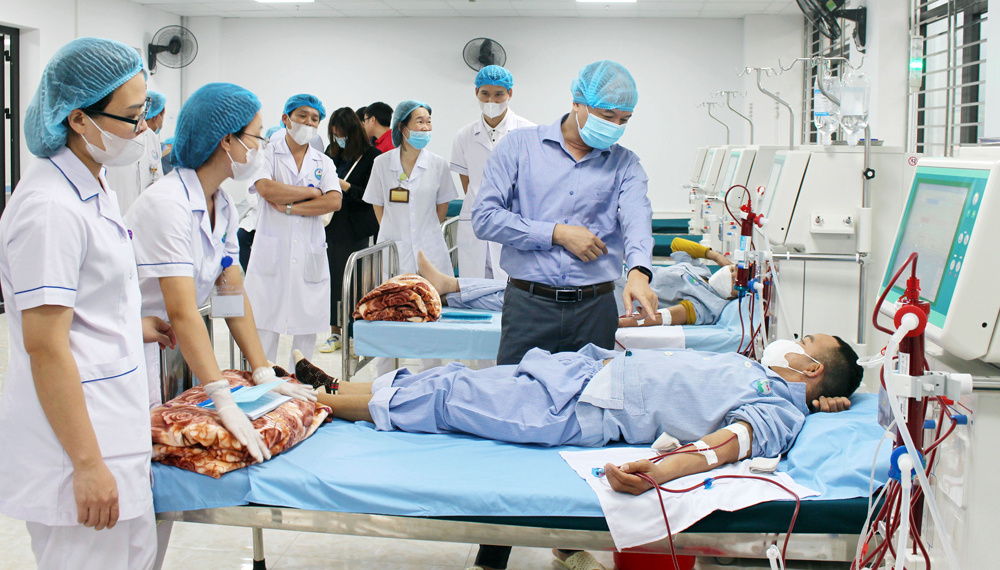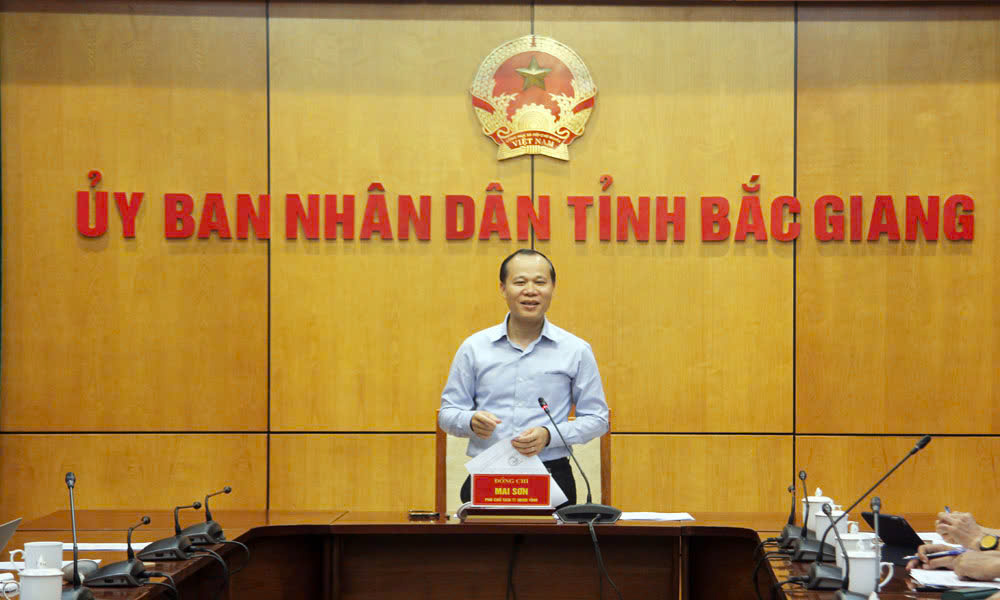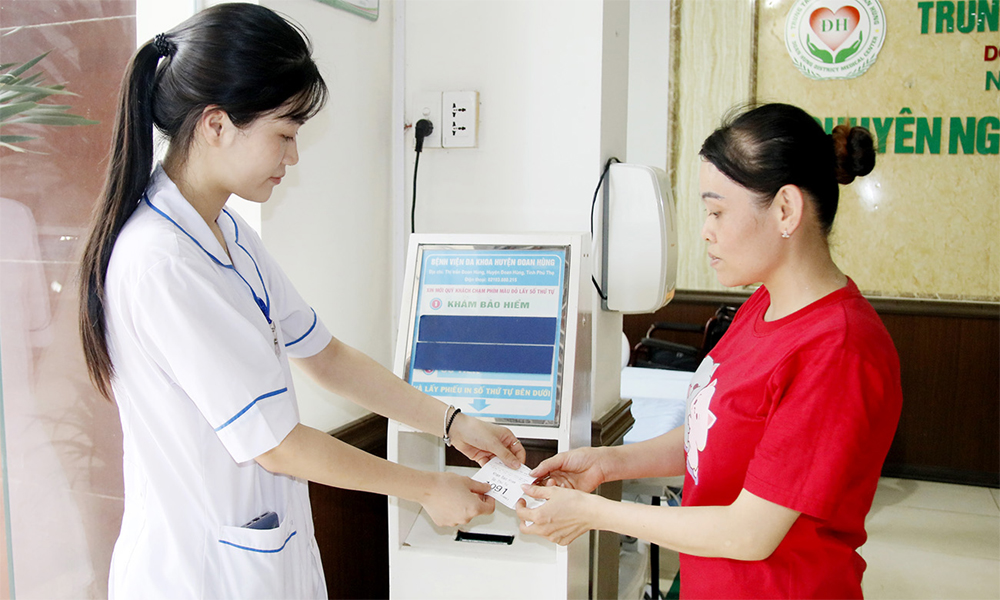Hundreds of trillions of Vietnamese dong and comprehensive reform
The policy of providing free healthcare for all is not only a humanitarian initiative but also a groundbreaking step in Viet Nam’s social welfare system, demonstrating the Party and State’s commitment to safeguarding public health.
Recently, General Secretary To Lam directed a study into a proposal for nationwide free healthcare for the 2030–2035 period, with a roadmap to ease the financial burden of medical costs on citizens.
 |
|
Parents and teachers need to proactively prevent hand, foot, and mouth disease in children. |
To implement this policy, the Ministry of Health is currently drafting a proposal with two key objectives: to offer free annual health check-ups for every citizen, and to gradually implement universal free hospital care in two phases—2026–2030 and 2031–2035.
According to estimates, with a population of 100 million and an average cost of 250,000 VND per check-up, the budget required to ensure at least one health check-up per person per year amounts to 25 trillion VND.
In 2020, total healthcare expenditure was 272.24 trillion VND, of which around 100 trillion VND came from health insurance. Set against the backdrop of the state budget, this figure highlights just how formidable the financial challenge is.
However, the question "Where will we find hundreds of trillions of dong?" is not without an answer—if we are willing to rethink the entire financial structure of the healthcare system, focusing on rationalising spending and diversifying sources of revenue.
First, we must rely on a strong financial foundation: universal health insurance. Although Viet Nam has achieved over 94% coverage, “coverage” does not necessarily mean “adequacy.” The benefit package remains disproportionate to the actual costs of modern treatment.
Drug lists, new medical technologies, and advanced equipment are not regularly updated. Amending the Law on Health Insurance in 2024 is a good starting point, but further restructuring of the fund is needed, including shifting contributions from being based on the basic wage to income-based, improving the investment efficiency of the fund, and expanding benefits in a controlled manner.
Second, a targeted taxation mechanism should be established for products harmful to health—such as tobacco, alcohol, and sugary drinks—to supplement the healthcare budget.
Many countries have successfully implemented this strategy. Thailand allocates 2% of alcohol and tobacco tax revenues to a public health fund.
The Philippines dedicates up to 85% of tobacco tax revenue to healthcare. Viet Nam could also move towards a "health fund for a healthier community" built on this model.
Third, social resources must be mobilised systematically and transparently. Many businesses are willing to invest in hospitals and social welfare funds if there is a clear legal framework and if their investments yield returns—both economically and socially.
Numerous non-profit hospital models in developed countries show that socialisation does not equate to commercialisation. Instead, it represents a way to share the responsibility of developing the healthcare system with the wider society.
Fourth, correct prioritisation is essential, reflecting the humanitarian spirit of the policy. Before achieving universal free hospital care, the policy could follow a phased approach, prioritising the poor, those who contributed to the revolution, veteran officials, the elderly, and people in remote areas.
This is not only financially sound but also reaffirms the humane essence of the policy that the Party and State are determined to pursue—one that prioritises the vulnerable.
Finally, the governance structure of the healthcare system must be reformed to avoid waste, leakage, and scattered investments. A well-spent dong at the right time, in the right place, for the right person is worth more than a hundred misspent ones.
The autonomy mechanism for hospitals also needs to be adjusted to ensure transparency, linking responsibility to service quality and financial efficiency.
Achieving free healthcare requires a comprehensive reform—not only in finance, legislation, and governance, but also in society’s perception of the right to health. If public health is truly considered a national asset, then an investment of “hundreds of trillions of dong” is entirely justified.
 Bắc giang
Bắc giang












Reader's comments (0)